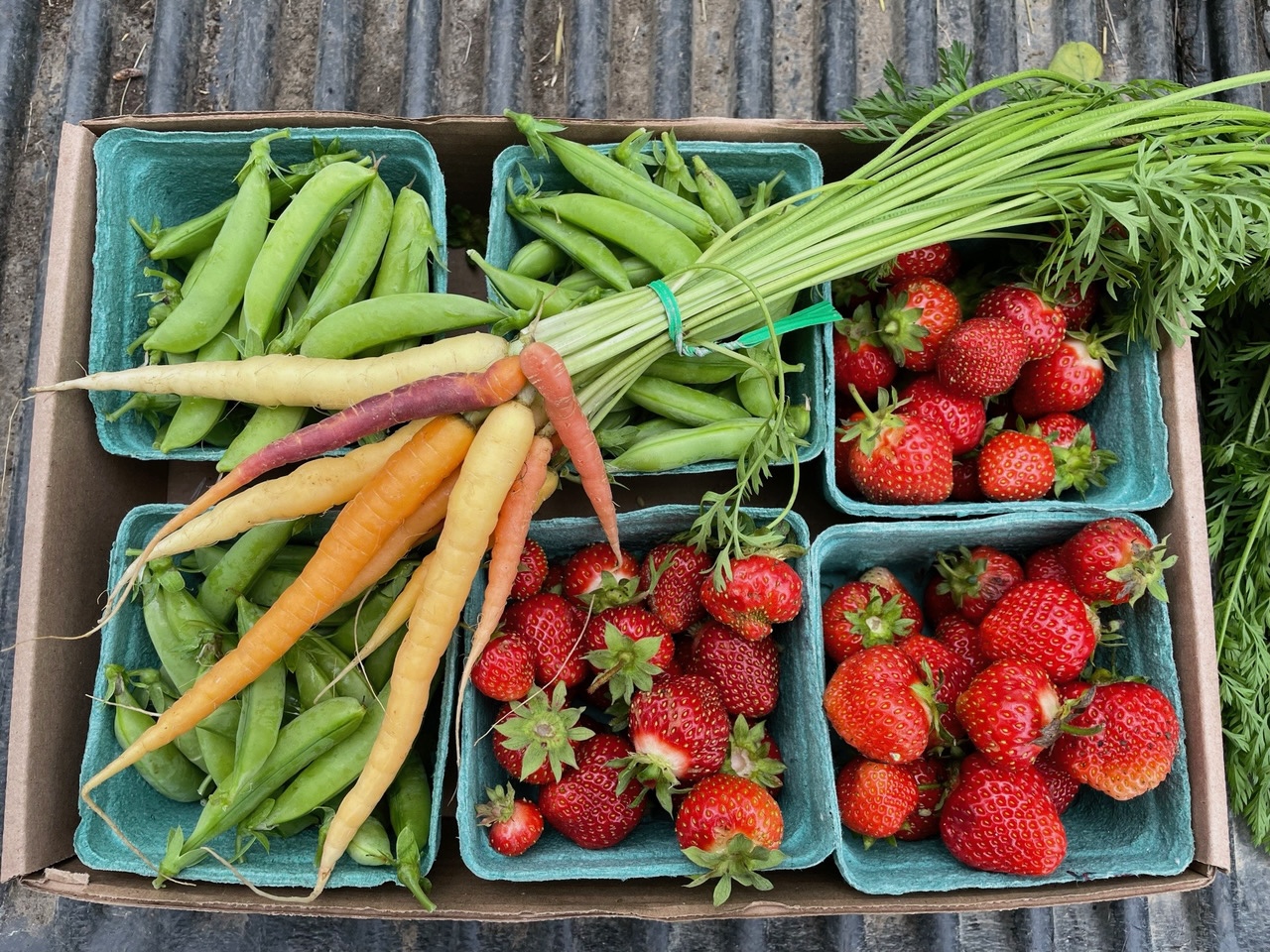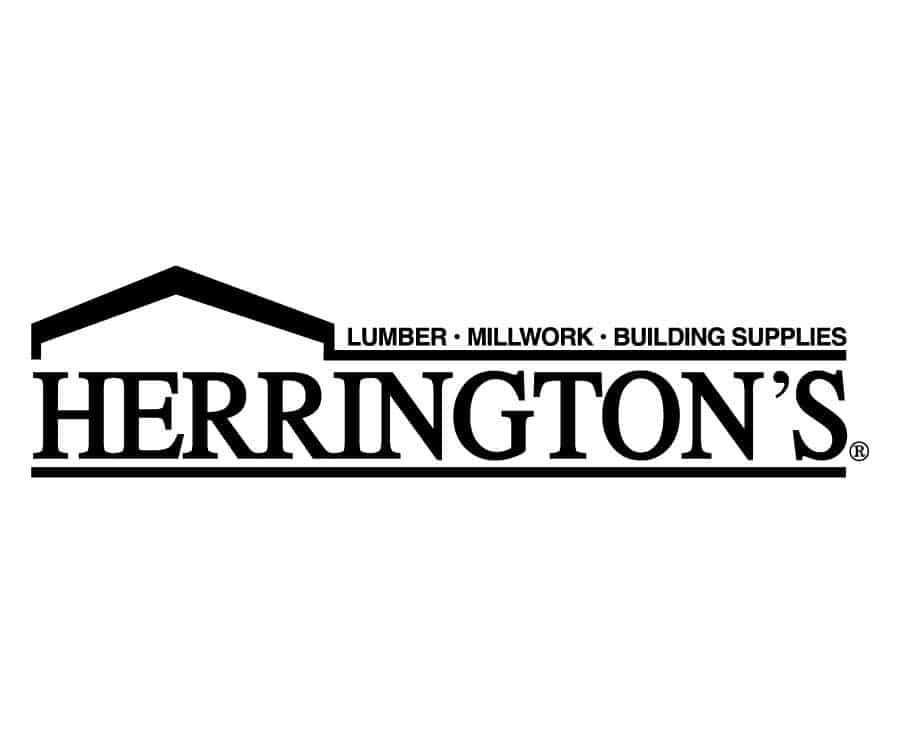Main Street Business
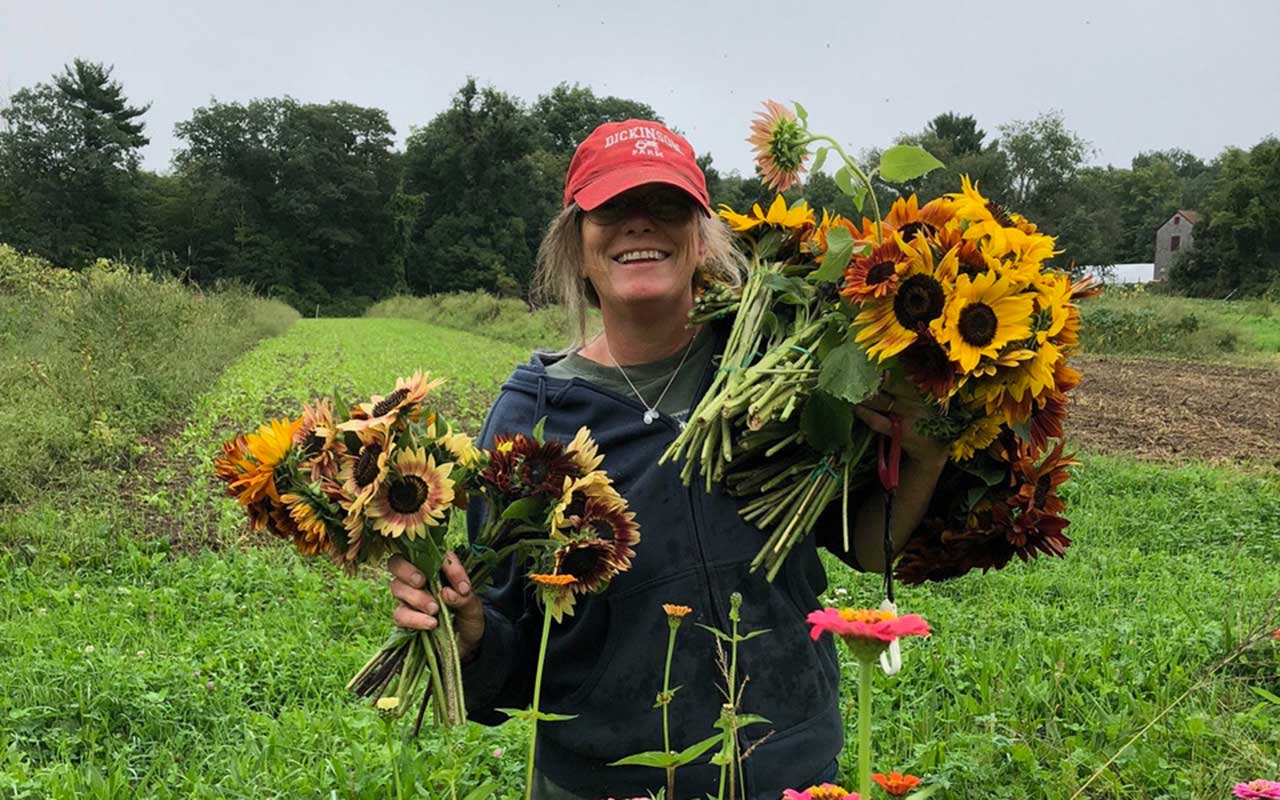
Ridgway Farm: The Business of a Family Farm
Being a farmer is hard work. It requires long hours and deep dedication. But the rewards of cultivating the earth and feeding people can’t be quantified. We were able to catch up with Gordon Ridgway of Ridgway Farms in West Cornwall, CT, to learn about his journey to becoming a farmer, how he contributes and gives back to his community, and how he’s passed on his farming passion and knowledge to his children.
How did you decide the farming life was for you?
I grew up in Cornwall, went to elementary school here and then Salisbury School before going to St. Lawrence University in northern New York State. As a kid I had always helped out on farms, and I decided that farming was a way to return home to Cornwall and make a life.
In 1980, after I graduated college, my father, Bruce Ridgway, and I turned the land he had purchased relatively cheaply years before into a productive, organic farm. The very first year we started selling vegetables from our farm stand. We built farm buildings ourselves and added cattle, pigs, and chickens. We started making maple syrup and growing flowers. My wife Jayne and then our children Elizabeth, Ian, and Rebecca play an important role in growing the farm into a sustainable family endeavor and giving it a future.
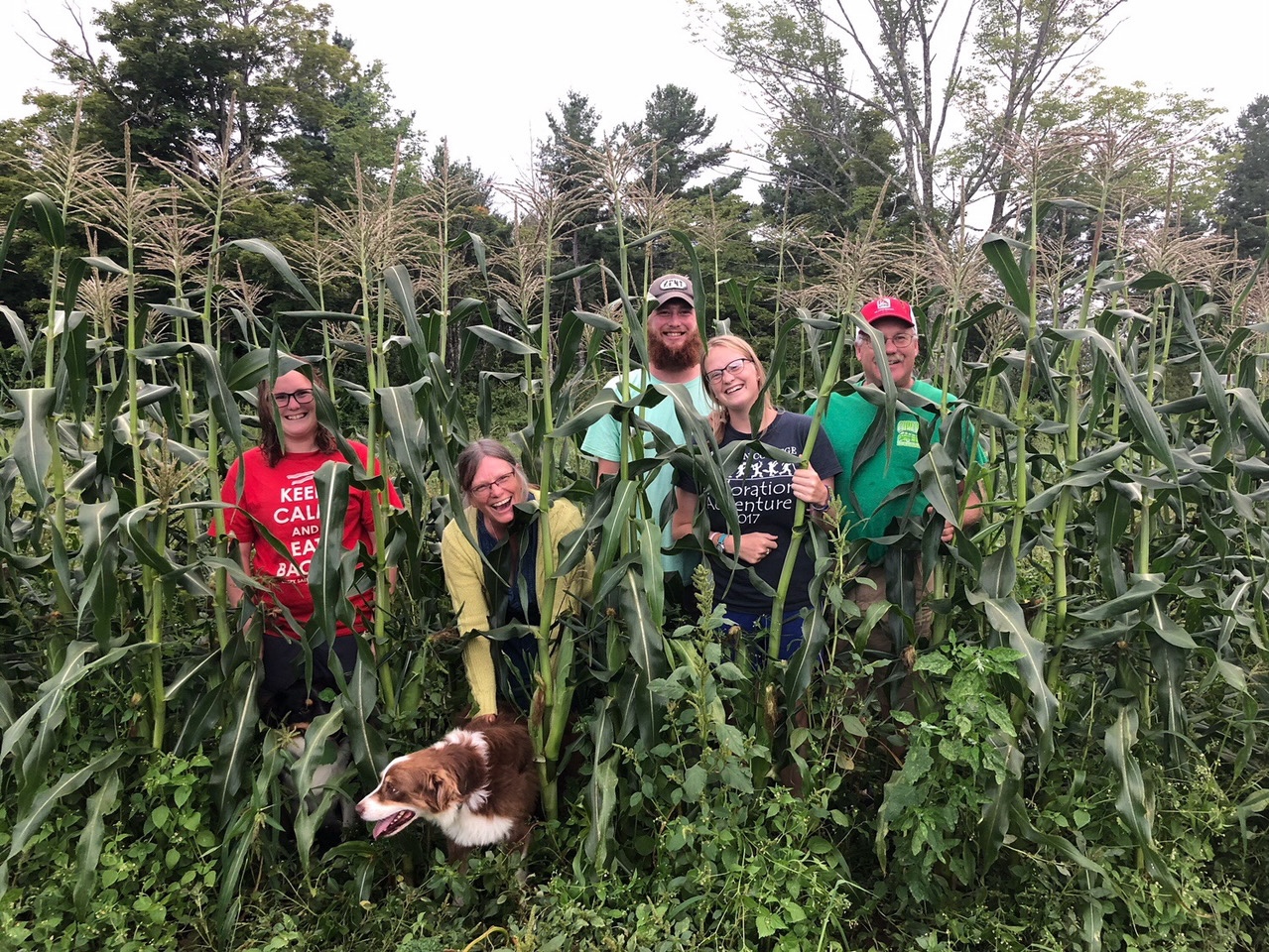
What heritage techniques do you use?
Our farm was one of the first certified organic farms in Connecticut. Instead of fertilizer we use composted manure and cover crops to improve our soil. We plant heirloom varieties of vegetables that grow well in our climate. Our 15 varieties of heirloom tomatoes are a great example. And right now, we are grafting 350 apple scions of many heritage varieties to create a cider orchard.
My son Ian is growing young apple trees from scion wood he has collected from old Cornwall orchards to preserve local genetic history. These heritage varieties include Esopus Spitzenberg apples named in honor of the Catskill indigenous tribe, they were propagated in the eighteenth century for making cider, reportedly a favorite variety of Thomas Jefferson.
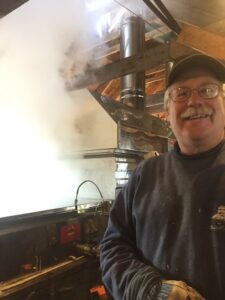 Is it difficult to be a farmer in Cornwall?
Is it difficult to be a farmer in Cornwall?
We don’t have the greatest soil here. Dig a hole anywhere and you’ll find a rock. Weather is always every farmer’s biggest problem, and climate change has only made it worse. We have to prepare for drought by improving our irrigation systems and for extreme temperatures by building more green houses, all while worrying about flooding and drainage.
The late spring frost last year decimated the peach and apple crops, and the warm winters halved Canada’s maple syrup production. Heavy rains and cloudy weather keep customers away from farm stands and farmer’s markets.
What are your most profitable items?
Tomatoes, lettuce, and maple syrup are our biggest products. Meat and eggs aren’t as important, but cattle and hens produce valuable manure for the fields. We ship maple syrup all over the world and can sell it all year long.
Where do you sell your products?
We have our “Get Fresh” farm stand on Town Street that is open 24/7 functioning on the honors system. On Saturday mornings in season, we join other farmers selling their products at the Coop Farm Market on the green and also in Kent. Shares of our CSA are available by contacting us at theridgwayfarm@gmail.com. Our new crop of maple syrup is available at many area stores and farm stands: The Local in West Cornwall, the Cornwall Market in Cornwall Bridge, and LaBonne’s in Salisbury all have good displays. We manage to sell everything we produce.
Before COVID, our wholesale business to stores and restaurants was important, but it disappeared during the pandemic. Now it’s coming back. You have to adjust. For twenty years we have been supplying food pantries. Recently we received a grant to supply fresh produce for the food pantries in Lakeville and Cornwall. 90% of our sales are made within 15 miles of our farm.
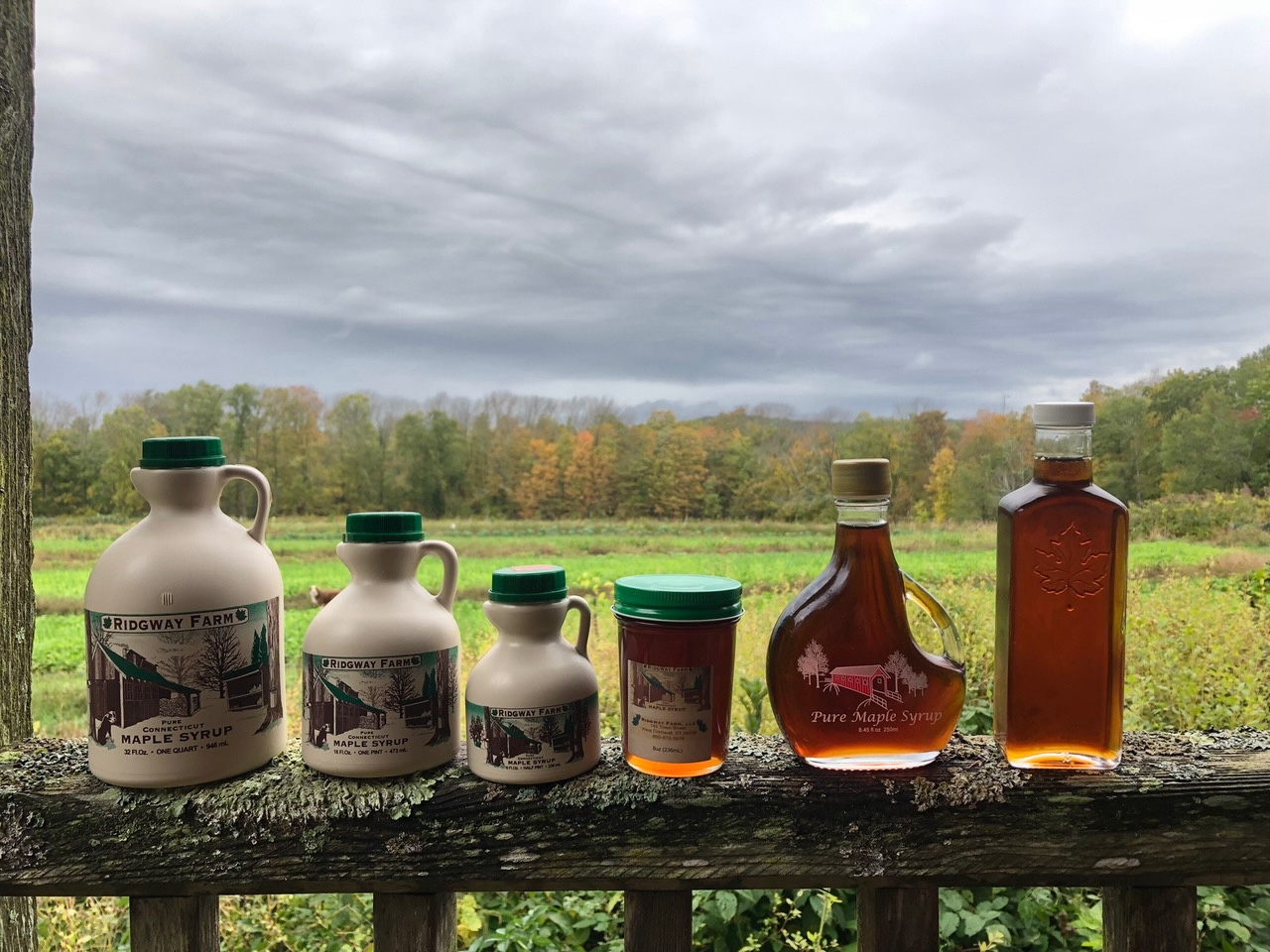
Who are your competitors?
In Cornwall there is a farming community. Hurlburt’s farm (cattle), Calf and Clover Creamery (great yogurt), horse and hay farms, llama ranches, the Dolan’s at Maple Hill Farm, Birdseye (grass-fed lamb and beef), and Tanner Brooks farm. There are at least 12 full-time farm operations in town. Locally we cooperate with other farmers and often trade farming techniques. Our common competitor is the grocery store, and our common enemy is the weather.
Has inflation affected your pricing?
Well, I can say that it has certainly affected everything we buy, but our prices at the farm stand have increased very little.
Where do you buy your seeds?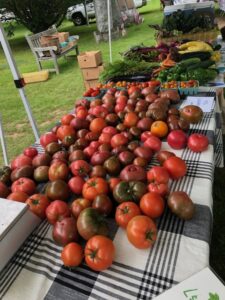
Most of our seeds comes from Fedco and Johnny’s Seeds in Maine and Hart Seeds in Wethersfield, CT.
Do you ever ask yourself if becoming a farmer was a mistake?
I have no regrets. It’s not incredibly profitable, and you work very hard, but you make lots of friends and have the freedom to make your own decisions, to see things grow, and have flexibility with your family life.
Sometimes the hours are very long. This week we got up at 5 am for sugaring and went to bed at 1 am. At the same time, it makes you appreciate your time off. The satisfaction you feel is passed along to your children.
What are your plans for the farm’s future?
You always have to be flexible and adjust to the market. We might plant some pumpkins this year. Our son Ian plans on opening a cider-tasting barn on the property where people can gather and enjoy soft and hard cider made from our farm’s organic heirloom apples. Our farm stand will be expanded into a farm store where we can sell more products.
Your whole family is an integral part of the Cornwall community.
That’s true. Jayne is a lieutenant in the Cornwall Fire Department, Rebecca is an EMT, Ian is a fire captain, and Elizabeth is the ambulance captain. I’ve been elected first selectman in Cornwall 17 times – that’s 34 years. •
Ridgway Farm is located at 142 Town St, West Cornwall, CT. You can call them at (860) 672-0279 or visit them online at ridgwayfarm.com.
